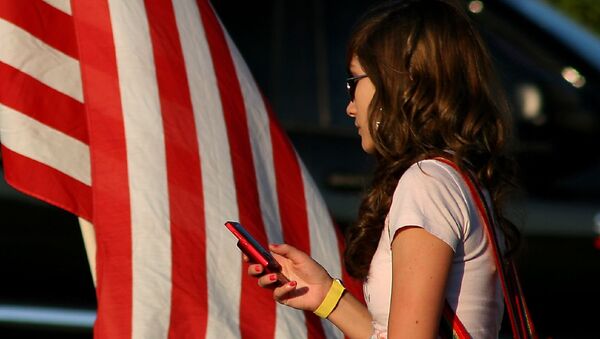WASHINGTON (Sputnik) — The court, which covers the US states of Virginia, Maryland and West Virginia, heard arguments on the legality of using cell site location information in criminal trials without first obtaining a warrant.
A previous ruling by the Fourth District Court, found that law enforcement "acted in good faith" in obtaining the information, however, the fact that the information was obtained from the cell provider without a warrant violated the defendants’ Fourth Amendment right to protection from undue search and seizure.
On Tuesday, the previous ruling was overturned, with Fourth Circuit Judge Diana Gribbon Motz writing, "that the government’s acquisition of historical CSLI from defendants’ cell phone provider did not violate the Fourth Amendment."
Both the defendants in the case as well as privacy advocates argued that the government did not have the right to the information without a warrant. The court maintained that the Fourth Amendment protection over information, such as cell site location information, no longer applies when it is "voluntarily" handed over to a third party, such as a service provider.
"The Supreme Court may in the future limit, or even eliminate, the third-party doctrine. Congress may act to require a warrant for CSLI. But without a change in controlling law, we cannot conclude that the Government violated the Fourth Amendment in this case," Motz wrote in the court’s conclusion.
In the original case involving Aaron Graham and Eric Jordan, Maryland law enforcement officials identified 221 days’ worth of information on each defendant, amounting to roughly 29,000 location-identifying data points.






